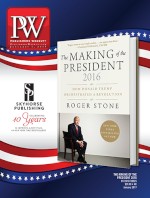Inspired by Hunter’s own quest to uncover her family history, We Were the Lucky Ones tells the story of a Polish Jewish family separated at the outset of WWII.
The novel is based on your grandfather’s family’s experiences in Poland during the Holocaust. Why was this a story you needed to tell?
Growing up, I had no idea that [fleeing the Holocaust] was a piece of my grandfather’s past. He had chosen to put it behind him. I discovered it at this age when I was figuring out who I was and where I came from. So part of it was my personal journey in self-discovery. The other part was, the more I researched it, the more I realized that this was a story unlike any story I’d ever heard. I mean, the whole town of Radom, Poland, where my family was from, had about 30,000 Jews before the war, and less than 300 survived. For an entire family to have survived—and they didn’t survive together, too, they survived scattered—was remarkable.
What originally inspired your research and writing?
During a family reunion in 2000, I wandered outside, sat down next to my aunt and decided to listen to some of the conversation, and I started hearing snippets of the greater Kurc saga. I remember thinking, how have I never heard these stories before? And how has no one ever written them down? It would be another eight years before I finally got the courage to finally set off and do it.
Can you talk a bit about your research process?
My research began in 2008. I had one living relative who was a year old at the start of the war. Her name was Felicia. I began by interviewing her. From there I set off to interview as many relatives as I possibly could. I wove together this narrative that provided the backbone of what would become the complete story. Through the Hoover Institution at Stanford, I was able to find a nine-page handwritten account of one of my grandfather’s brothers, who was sent to Siberia. The Shoah Foundation had oral histories for three of the main characters in the book.
Has this changed the way that you thought about history?
It gave me a more complete understanding of that chapter of World War II. One of the cool things about this story is because the [Kurc family] split up, over five continents and six years, you get this global understanding of what it was like at that time. The other thing that really shocked me was that, while they were struggling every day to stay alive, they were also getting engaged, getting married in secret. So I saw the historical side, but I also saw what it was like to be human—to get by day to day, holding onto these little pieces of their old lives.



 Volume 264
Issue 01
01/02/2017
Volume 264
Issue 01
01/02/2017





